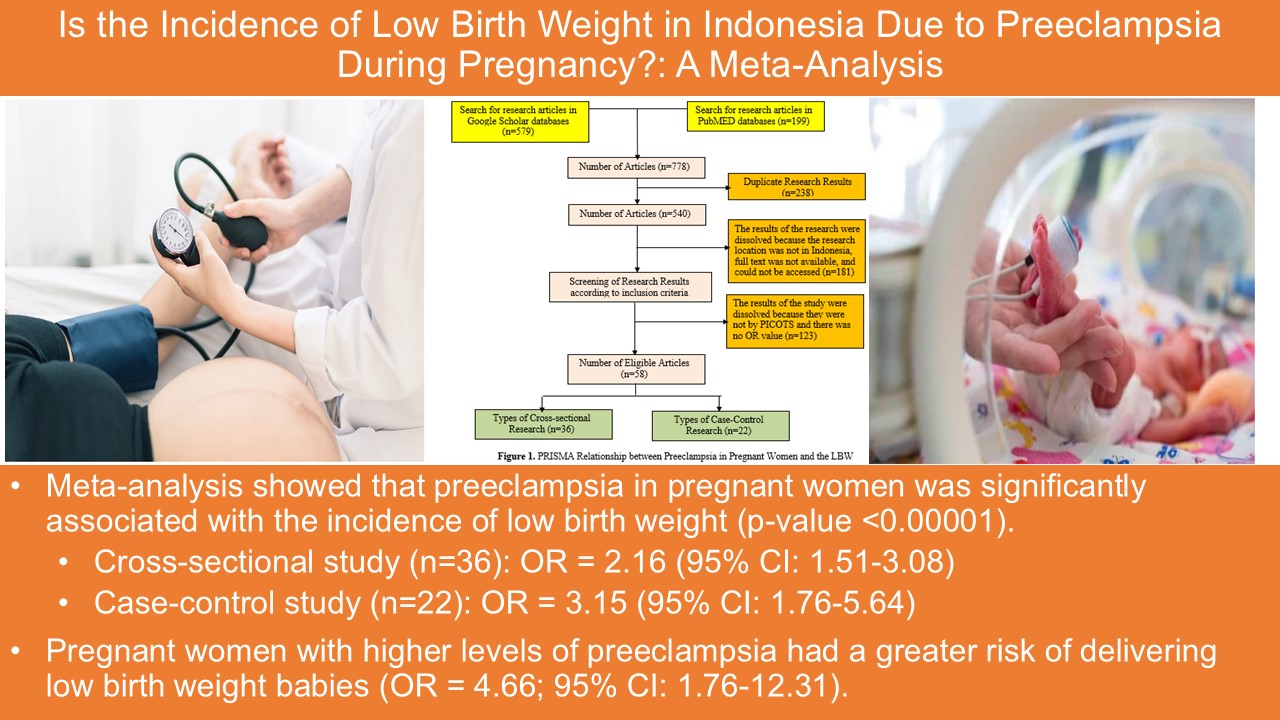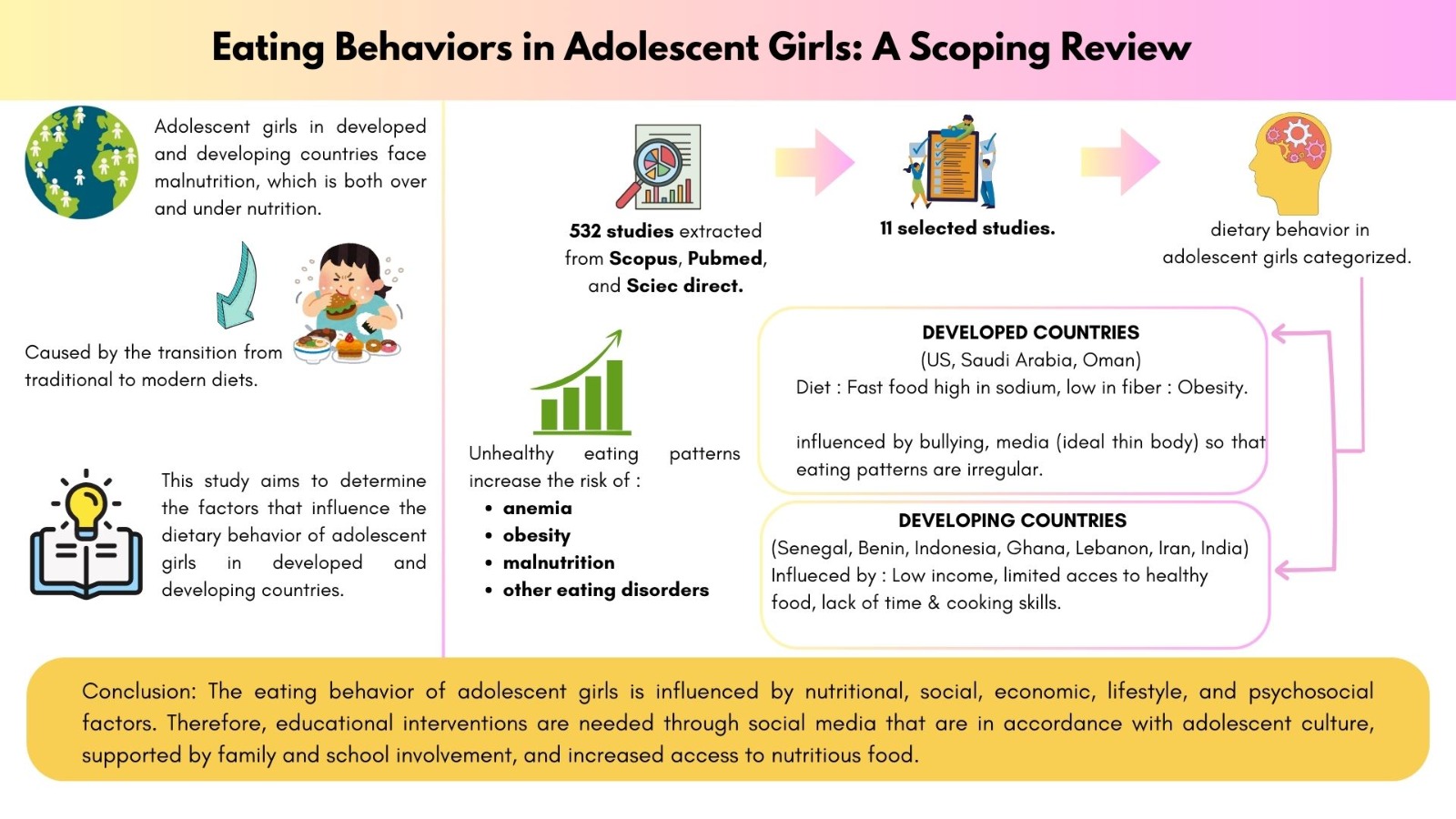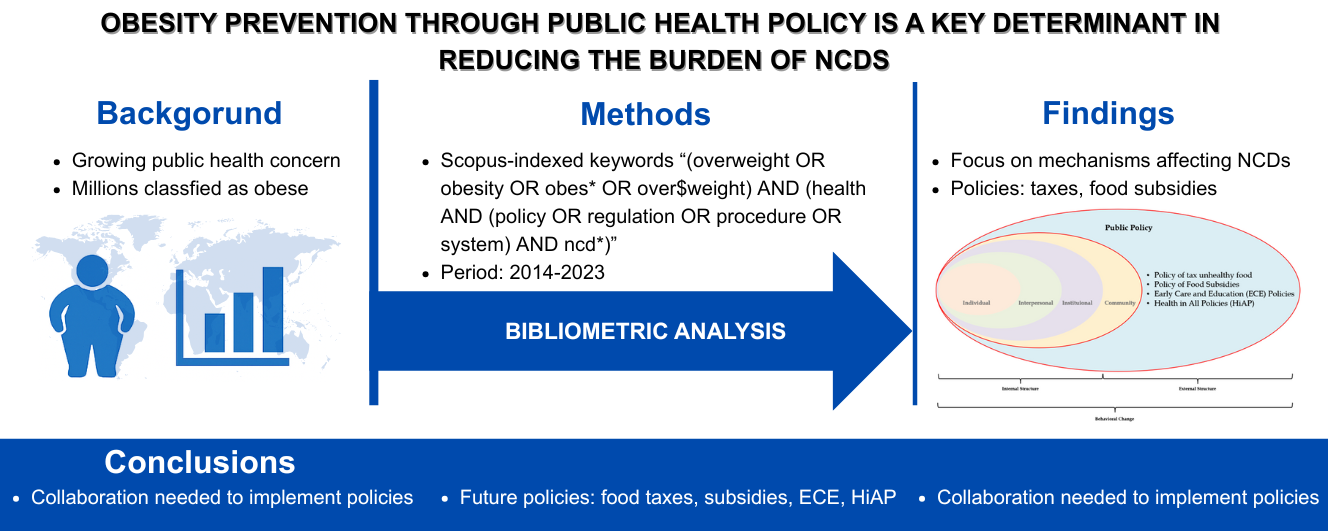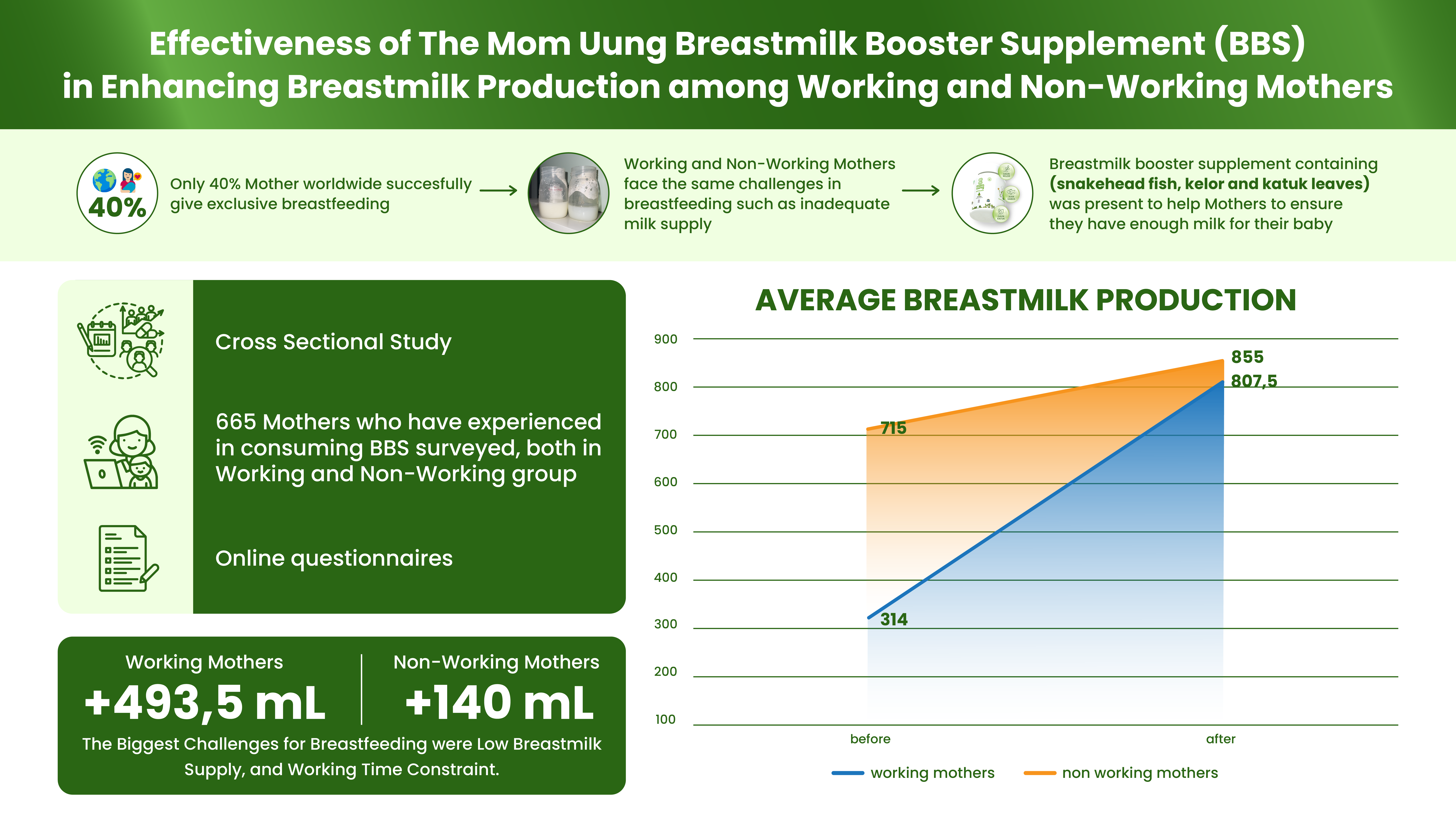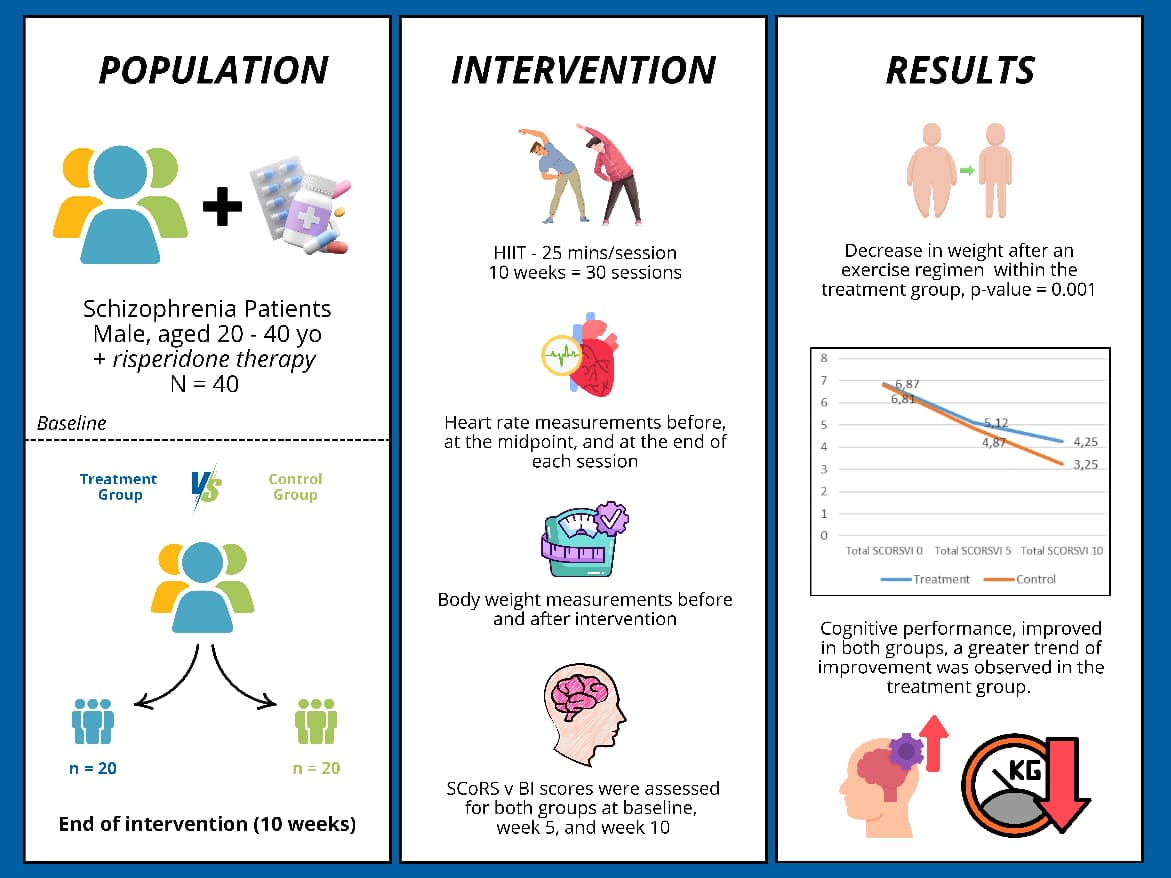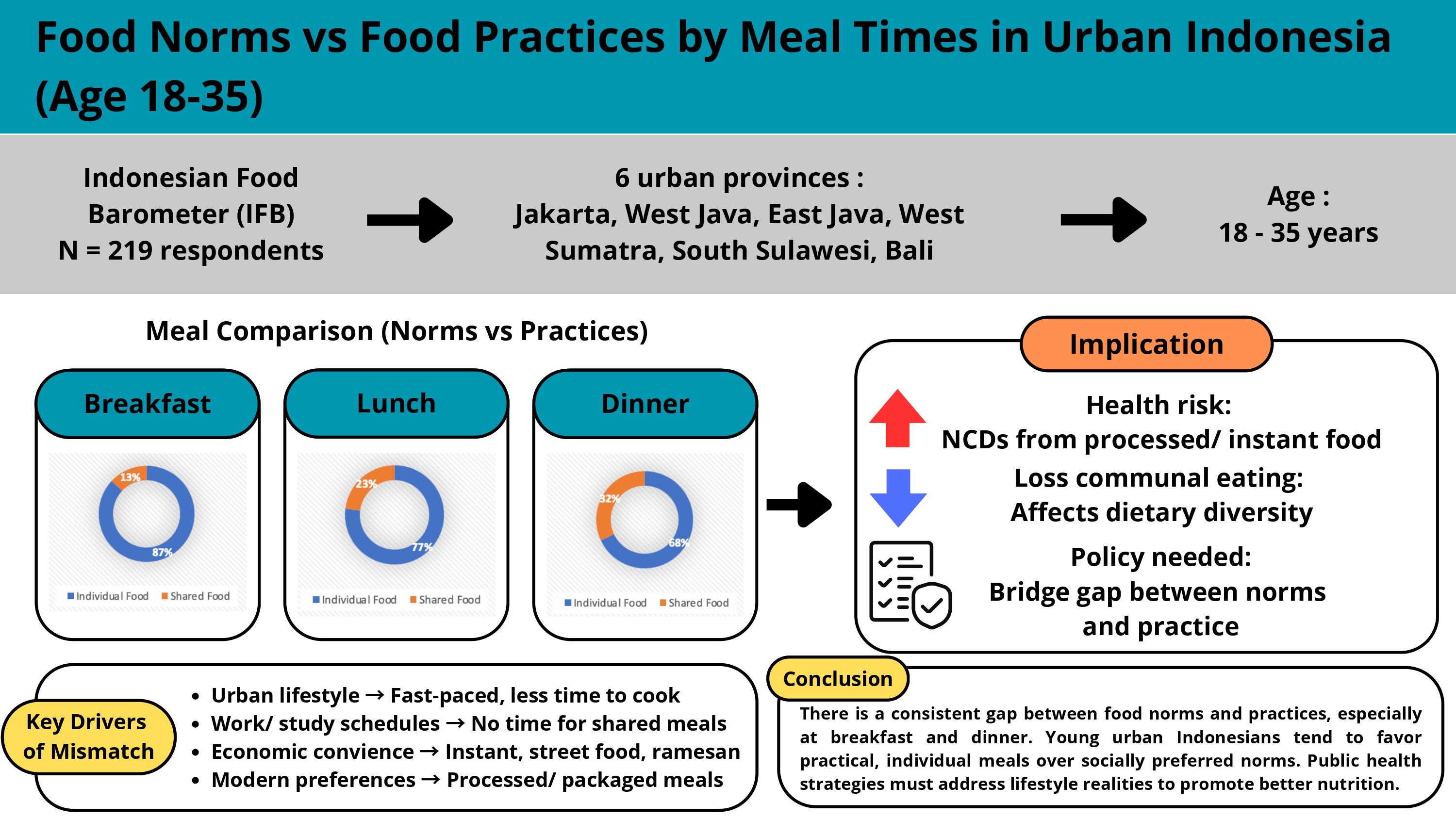RELATIONSHIP BETWEEN GENDER, TRYPTOPHAN AND VITAMIN B3 CONSUMPTION PATTERNS WITH EMOTIONAL EATING IN OVERWEIGHT ADOLESCENTS
Downloads
Ali, R., & Nuryani. (2018). Sosial ekonomi, konsumsi fast food dan riwayat obesitas sebagai faktor risiko obesitas remaja. Media Gizi Indonesia. 13:123-132.
American Psychiatric Association. (2013). Diagnostic and statistical manual of mental disorders (5th ed.). Washington, DC: American Psychiatric Pub
Belitz, H.D., Grosch, W., & Schieberle, P. (2009). Food chemistry, fourth edition. Berlin: Spinger.
Camilleri, G.M., Mejean, C., Kesse-Guyot, E., Andreeva, V.A., Bellisle, F., Ì Hercberg, S., & Peneau, S. (2014). The associations between emotional eating and Ì consumption of energy-dense snack foods are modifi ed by sex and depressive symptomatology. J Nutr. 144:1264–73.
Desi, S., & Winda, D.A. (2018). Hubungan sarapan, uang saku dengan jajanan di SD Kristen Immanuel II Kubu Raya. Jurnal Vokasi Kesehatan. 4(2): 106-107.
Dressler, H., & Chery, S. (2015). Depression aff ects emotional eating and dietary intake and is related to food insecurity in a group of multiethnic, Low-income Women. Journal of Hunger & Environmental Nutrition. 10:496–510.
Haider, S., Khaliq, S., Ahmed, S.P., & Haleem, D.J. (2006). Long-term tryptophan administration enhances cognitive performance and increases 5HT metabolism in the hippocampus of female rats. Amino Acids. 31: 421–425.
Kaur, J. (2014). A comprehensive review on metabolic syndrome. Cardiol Res Pract, 2014;943162, 1-21. doi:10.1155/2014/943162.
Kauzna-Czaplinska, P. G., Chirumbol, S. (2017). How important is tryptophan in human health?. Critical Reviews In Food Science And Nutrition. 59(1), 72-88. doi: 10.1080/10408398.2017.1357534.
Kennedy, D.O. (2014). Plants and the human brain. New York : Oxford University Press.
Lassi, Z., Anoos, M., Jai, K., Rehana, A., & Zulfi qar, A. (2017). Systematic review on evidence-based adolescent nutrition interventions. Ann N Y Acad Sci. 1393(1):34-50.
Lopresti, A. L., & Drummond, P.D,. (2013). Obesity and psychiatric disorders: commonalities in dysregulated biological pathways and their implications for treatment. Prog Neuro- Psychopharmacol BiolPsychiatry. 2013; 45: 92–9.
Ministry of Health (2018). Riset Kesehatan Dasar. Jakarta : National Agency of Health Research and Development, Ministry of Health Republic of Indonesia.
Mitchell, E.S., Conus, N., & Kaput, J. (2014). B vitamin polymorphisms and behavior: Evidence of associations with neurodevelopment, depression, schizophrenia, bipolar disorder and cognitive decline. Neurosci. Biobehav. Rev. 47, 307–320.
Mussap, A.J. (2007). Short communication: The relationship between feminine gender role stress and disordered eating symptomatology in women. Stress Health . 23(5): 343-348.
Silva, L. C., M. B. Viana, J. S. Andrade, M. A. Souza, I. C. Cespedes & V.D'Almeida. (2017). Tryptophan overloading activates brain regions involved with cognition, mood and anxiety. An Acad Bras Cienc. 89:273–83
Singh, J. B., Fedgchin, M., Daly, E. J., De Boer, P., Cooper, K. & Lim, P., (2016). A double-blind, randomized, placebo-controlled, dose-frequency study of intravenous ketamine in patients with treatment-resistant depression. Am. J. Psychiatry. 173, 816–826.
Slamet DS & Ubaidillah. (1987). Kandungan niasin beberapa jenis bahan makanan Indonesia. Penelitian Gizi dan Makanan. 10 : 77-81.
Striegel-Moore, R.H., Rosselli, F & Perrin, N. (2010). Gender diff erences in the prevalence of eating disorder symptoms. Int J Eat Disord.42(5): 471-474.
Suhardjo. (2010). Perencanaan pangan dan gizi. Jakarta: Bumi Aksara.
Tronieri J. S., Courtney M. W., Rebecca L. P., & Kelly C. A. (2017). Sex diff erences in obesity and mental health. Curr Psychiatry Rep. 19:29.
Van Strien, T., Cebolla, A., Etchemendy, E., Guti_errez-Maldonado, J., Ferrer- García, M., & Botella, C. (2013). Emotional eating and food intake after sadness and joy. Appetite. 66: 20-25.
Van Strien, T., Konttinen, H., Homberg, J. R., Engels, R. M., & Winkens, L. H. (2016). Emotional eating as a mediator between depression and weigh gain. Appetite. 100 : 216-224.
Yeung David L & Laquatra Idamarie, 2003. Heinz Hand Book of Nutrition Ninth. Heinz Corporate Research Center H.J. Washington, DC: HEINZ Company.
- MEDIA GIZI INDONESIA Journal is the copyright owner of all materials published on this website.
- The formal legal provisions for access to digital articles of this electronic journal are subject to the terms of the Creative Commons Attribution-NonCommercial-ShareAlike license (CC BY-NC-SA 4.0), which means that MEDIA GIZI INDONESIA Journal and readers reserve the right to save, transmit media / format, manage in database, maintain, and publish articles as long as it continues to include the name of the Author.
- Printed and published print and electronic manuscripts are open access for educational, research and library purposes. In addition to these objectives, the editorial board shall not be liable for violations of copyright law.


2.png)















